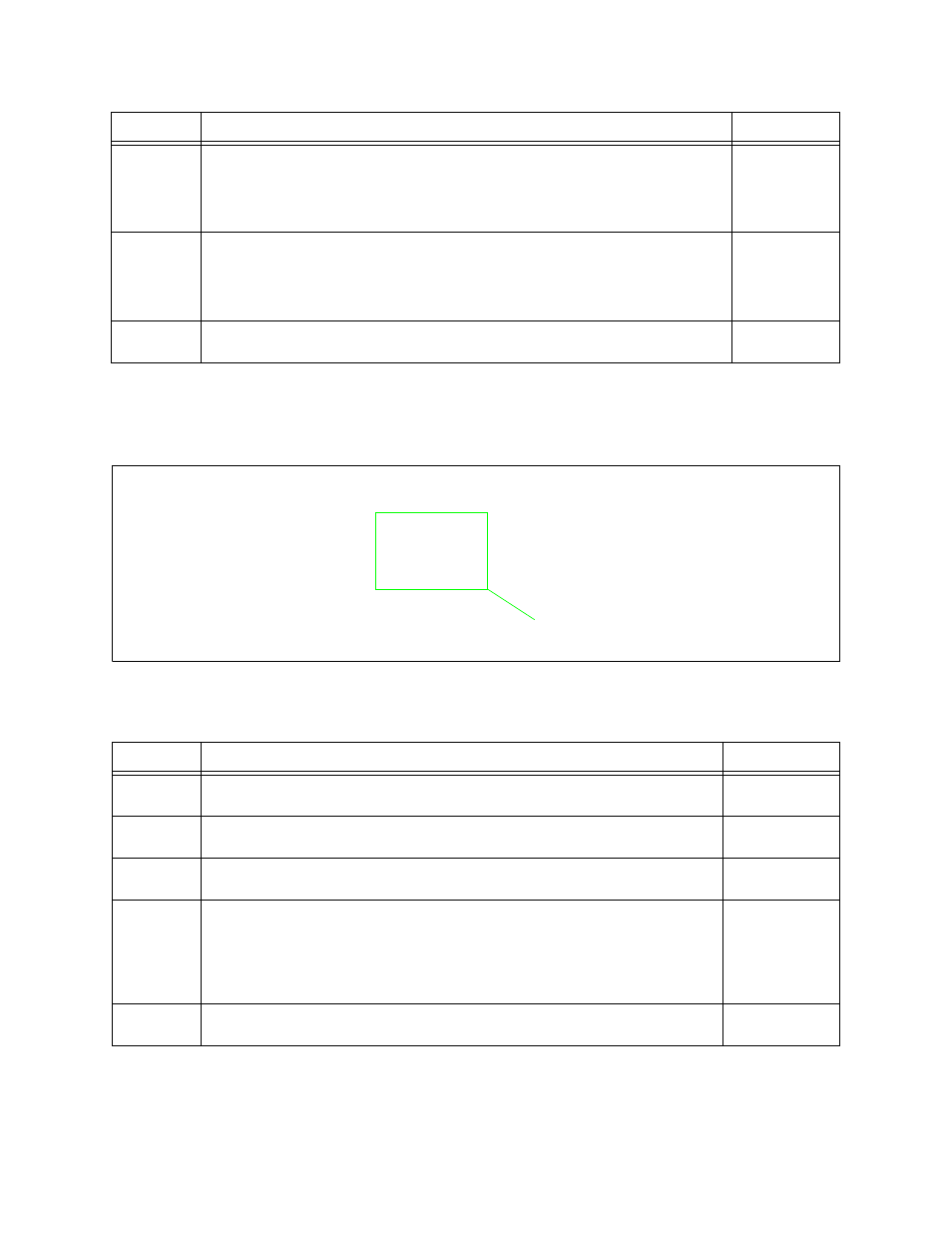Verilink QPRI 2921 (880-503143-001) Product Manual User Manual
Page 46

Configuring the QPRI 2921 Via the NCM 2000 Craft Interface
3-12
Verilink QPRI 2921
If you enable “Receive Clock from Shelf” (which is what you should
do if you plan on using the module’s ISDN and dial-backup
features) the following options display:
Figure 3-7 Configuration Menu (Timing Options) for Receive Clock from Shelf Option
Following is a brief description of the additional timing parameters
shown for “Yes” for the “Receive Clock from Shelf” timing option:
Table 3-8
Configuration Menu (Timing Options), Receive Clock From Shelf
TA
Tertiary Auto Restore: Indicate Yes to resynchronize to your clock preference
automatically if the clock in the node fails. Otherwise, choose No. Specifying
a tertiary source for clocking is useful when power loss results in failure of
the primary and secondary sources for automatic restore. Restoring from a
tertiary source may take up to 90 seconds.
Yes or No
(Y/N)
R
Receive Clock from Shelf: Use this option to indicate the DPRI receives the
timing signal from another module in the shelf or from an on-board timing
source.
Note: Changing this option will change the Configuration Menu (Timing
Options) display the next time it is refreshed, Figure 3-6 and Figure 3-7.
Yes or No
(Y/N)
X
Exit the Timing Options screen and return to the T1 Port Configuration
Command
Description
Options
-- QPRI CONFIGURATION MENU (TIMING OPTIONS)--
-- QPRI CONFIGURATION MENU (TIMING OPTIONS)--
-- QPRI CONFIGURATION MENU (TIMING OPTIONS)--
-- QPRI CONFIGURATION MENU (TIMING OPTIONS)--
Current shelf timing source: Card 2, INTERNAL (PRIMARY)
Current shelf timing source: Card 2, INTERNAL (PRIMARY)
Current shelf timing source: Card 2, INTERNAL (PRIMARY)
Current shelf timing source: Card 2, INTERNAL (PRIMARY)
Source
Source
Source
Source
Slot Number
Slot Number
Slot Number
Slot Number
Synchronization
Synchronization
Synchronization
Synchronization Auto Restore
Auto Restore
Auto Restore
Auto Restore
PRIMARY
PRIMARY
PRIMARY
PRIMARY
PC) 2
PC) 2
PC) 2
PC) 2
PS) NET1
PS) NET1
PS) NET1
PS) NET1 PA) YES
PA) YES
PA) YES
PA) YES
SECONDARY
SECONDARY
SECONDARY
SECONDARY
SC) 2
SC) 2
SC) 2
SC) 2
SS) NET2
SS) NET2
SS) NET2
SS) NET2 SA) YES
SA) YES
SA) YES
SA) YES
TERTIARY
TERTIARY
TERTIARY
TERTIARY
TC) 2
TC) 2
TC) 2
TC) 2
TS) INTERNAL
TS) INTERNAL
TS) INTERNAL
TS) INTERNAL TA) NO
TA) NO
TA) NO
TA) NO
R) Receive clock from shelf: YES
R) Receive clock from shelf: YES
R) Receive clock from shelf: YES
R) Receive clock from shelf: YES
X) exit this screen
X) exit this screen
X) exit this screen
X) exit this screen
[1,2] QPRI >
[1,2] QPRI >
[1,2] QPRI >
[1,2] QPRI >
Additional parameters because Receive Clock From Shelf
Option selected is YES.
Command
Description
Options
PC
Primary Module Slot Number: This option selects the module providing the
primary timing source.
Enter module
(slot) number
SC
Secondary Module Slot Number: This option selects the module providing
the secondary timing source.
Enter module
(slot) number
TC
Tertiary Module Slot Number: This option selects the module providing the
tertiary timing source.
Enter module
(slot) number
R
Receive Clock from Shelf: This option selects whether the DPRI will receive
its timing signal from another module in the shelf, or from an on-board
timing source.
Note: Changing this option will change the appearance of the
Configuration Menu (Timing Options) the next time it is displayed,
Yes or No
(Y/N)
X
Exit the Timing Options menu and return to the T1 Port Configuration
Menu, Figure 3-4, Table 3-5.
